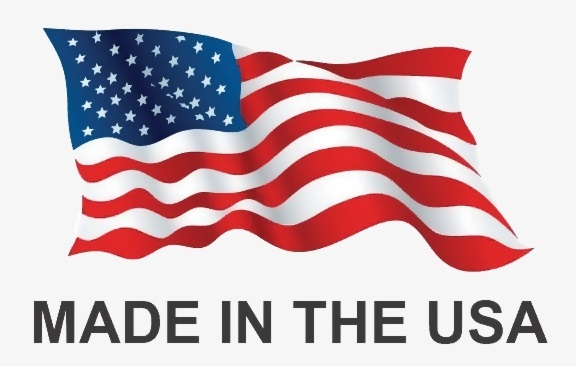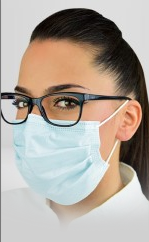 |
Lion's Dental Supply & Equipment
|
|
|
|
|
 |
|
|
|
|
Sure Seal ASTM Level 1 Medical Ear-Loop Disposable Face Mask |
|
|
Sure Seal ASTM Level 1 Blue Medical Ear-Loop Disposable Procedure Face Masks
Sure Seal ASTM Level 1 Medical Grade
Face Masks with Fluid Protection. Innovative inner material feels silky soft on your skin, along with gentle ear loops and a curved nosepiece for a pleasant fit. Hypoallergenic. Not made from natural rubber latex. Blue or Black color. It's softer and more breathable. It is available in all three levels of ASTM protection. Sure Seal Procedure Masks are manufactured in an ISO compliant facility by a manufacturer that is approved by the FDA to produce medical supplies of all forms--not just masks. These masks have undergone rigorous testing to ensure regulatory compliance and more importantly to ensure a premium mask you can trust. Better fit than leading competitors for improved protection. Exceeds ASTM performance requirements for bacterial and particle filtration. Patented nose bend for proper mask placement.
Trust Sure Seal Surgical Face Masks to help protect you in the fight against infectious diseases, including COVID-19
SureSeal Disposable Face Masks have been tested by the 3rd Party Medical Device Labs. Nelson Labs is a laboratory accredited to assess "Masks, Gloves, Medical Protective Clothing and Other Personal Protective Equipment." These test reports from these labs are also accepted by the US FDA.
these test results include over 99% bacterial filtration efficiency and meet the EN14683 Type IIR EU Standard requirements.Sure Seal Surgical Face Masks are Now Made In The USA.
Brand: Sure Seal
Color: Blue & White
Composition/Ingredients: Hypoallergenic
Fluid Resistant: ASTM Level 1
Item Type: Earloop
Quantity: 50/Box
Bacterial Filtration Efficiency: >95.7
Particulate Filtration Efficiency: >95.8
Flame Spread: Class 1
Differential Pressure: >4.0
Meets ASTM Level 3 standard, 80 mmHg
Packaging: Since the Corona Virus They are now Packed in a Plastic Bag then in Elegant Premium Tissue Paper Inside the Box to prevent Cross Contamination
Reg $ 69.99
Sale $ 8.99
|
Choosing the Right Face Mask
When was the last time you were struck in the face by blood or other bodily fluids during surgery? Studies1 show such incidents occur to OR staff, on average, between 45% and 51% of the time, and that’s an excellent reason to be sure you’re wearing a face mask that provides the protection you need.
But with all the options available, knowing how to select the mask that will give you the right level of protection for the task at hand can be confusing.
Fortunately, that process has been made as easy as 1-2-3 with ASTM ratings.
What is ASTM?
ASTM International is a global organization that develops and publishes technical standards for an expansive array of products, materials, systems and services. Today, more than 12,800 ASTM standards are in use around the world, including ASTM F2100-11, the standard for medical face masks since 2012.
Where does the Easy as 1 – 2 – 3 come in?
In developing ASTM F2100-11, the organization tested material used to make medical face masks on five performance metrics. Based on their test scores, ASTM assigns a numerical rating for the barrier performance of the material:
Level 1 - for low risk of fluid exposure
Level 2 - for moderate risk of fluid exposure
Level 3 - for high risk of fluid exposure
So, how will I know how each mask is rated?
Simply look for ASTM Level 1, 2, or 3 on the face mask package. However, not all face masks are ASTM-rated, so it’s important to check before you choose. It’s worth the effort to find face masks that DO carry the ASTM rating, to be sure you’re getting the proper level of protection.
Tell me more about how masks are tested
The five performance metrics and their related tests are:
Fluid Resistance – Test ASTM F1862
This test evaluates the resistance of a medical face mask to penetration by a small volume (~2 mL) of synthetic blood at a high velocity (80 mmHg, 120 mmHg, or 160 mmHg). The mask either passes or fails based on visual evidence of synthetic blood penetration.
Breathability – Test MIL-M-36954 C: ΔP
This test determines the face mask’s resistance to airflow. A controlled flow of air is driven through the mask, and the pressure before and after is measured. The difference in pressure is divided by the surface (in cm2) of the sample. A lower breathing resistance indicates a better comfort level for the user.
Bacterial Filtration (BFE) – Test ASTM F2101
This test measures the percentage of bacteria larger than 3 microns filtered out by the mask. The challenge material used is Staphylococcus aureus.
Particulate Filtration (PFE) – Test ASTM F2299
This test measures the percentage of particles larger than 1 micron filtered out by the mask. The challenge material used consists of latex aerosol concentrations in a controlled airflow chamber.
Flammability – Test 16 CFR Part 1610: Flame Spread
This test exposes the face mask material to a flame and measures the time required for the flame to proceed up the material a distance of 127 mm (5 inches). Class 1 means the material exhibits normal flammability and is acceptable for use in clothing. |
Surgical Face Masks (Face Masks)
A surgical mask is a loose-fitting, disposable device that creates a physical barrier between the mouth and nose of the wearer and potential contaminants in the immediate environment. Surgical masks are regulated under 21 CFR 878.4040. Surgical masks are not to be shared and may be labeled as surgical, isolation, dental, or medical procedure masks. They may come with or without a face shield. These are often referred to as face masks, although not all face masks are regulated as surgical masks.
Surgical masks are made in different thicknesses and with different ability to protect you from contact with liquids. These properties may also affect how easily you can breathe through the face mask and how well the surgical mask protects you.
If worn properly, a surgical mask is meant to help block large-particle droplets, splashes, sprays, or splatter that may contain germs (viruses and bacteria), keeping it from reaching your mouth and nose. Surgical masks may also help reduce exposure of your saliva and respiratory secretions to others.
While a surgical mask may be effective in blocking splashes and large-particle droplets, a face mask, by design, does not filter or block very small particles in the air that may be transmitted by coughs, sneezes, or certain medical procedures. Surgical masks also do not provide complete protection from germs and other contaminants because of the loose fit between the surface of the face mask and your face.
Surgical masks are not intended to be used more than once. If your mask is damaged or soiled, or if breathing through the mask becomes difficult, you should remove the face mask, discard it safely, and replace it with a new one. To safely discard your mask, place it in a plastic bag and put it in the trash. Wash your hands after handling the used mask. |
What is a N95 respirator?
A respirator is a personal protective device that is worn on your face, covers at least your nose and mouth, requires fit-testing, and is used to reduce your risk of inhaling hazardous airborne particles (including dust particles and infectious agents), gases or vapors.
One of the most commonly used respirators is a NIOSH-approved N95 Respirator mask, which has been tested to filter out at least 95% of airborne particles. A Surgical N95 Respirator is a NIOSH-approved N95 Respirator that has been cleared by the FDA for use as a surgical mask. Unlike other masks, N95 respirators must be fit-tested for each individual to ensure proper protection.
Comparing Surgical Masks and Surgical N95 Respirators
The FDA regulates surgical masks and surgical N95 respirators differently based on their intended use.
A surgical mask is a loose-fitting, disposable device that creates a physical barrier between the mouth and nose of the wearer and potential contaminants in the immediate environment. These are often referred to as face masks, although not all face masks are regulated as surgical masks. Note that the edges of the mask are not designed to form a seal around the nose and mouth.
An N95 respirator is a respiratory protective device designed to achieve a very close facial fit and very efficient filtration of airborne particles. Note that the edges of the respirator are designed to form a seal around the nose and mouth. Surgical N95 Respirators are commonly used in healthcare settings and are a subset of N95 Filtering Facepiece Respirators (FFRs), often referred to as N95s.
The similarities among surgical masks and surgical N95s are:
They are tested for fluid resistance, filtration efficiency (particulate filtration efficiency and bacterial filtration efficiency), flammability and biocompatibility.
They should not be shared or reused.
General N95 Respirator Precautions
People with chronic respiratory, cardiac, or other medical conditions that make breathing difficult should check with their health care provider before using an N95 respirator because the N95 respirator can make it more difficult for the wearer to breathe. Some models have exhalation valves that can make breathing out easier and help reduce heat build-up. Note that N95 respirators with exhalation valves should not be used when sterile conditions are needed.
All FDA-cleared N95 respirators are labeled as "single-use," disposable devices. If your respirator is damaged or soiled, or if breathing becomes difficult, you should remove the respirator, discard it properly, and replace it with a new one. To safely discard your N95 respirator, place it in a plastic bag and put it in the trash. Wash your hands after handling the used respirator.
N95 respirators are not designed for children or people with facial hair. Because a proper fit cannot be achieved on children and people with facial hair, the N95 respirator may not provide full protection. |
Copyright © 2013 Web Design by Web.com Group, Inc. |
|
|
 |
 |
|
 |
|

